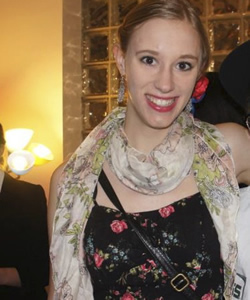One of the major reasons that I chose to study abroad in Denmark was because I wanted to experience what it is to live in a society that prides itself on the amount of equality it has achieved. Indeed, prior to leaving Georgetown last spring, I went with many other students to the Danish embassy for an introductory dinner, where a Danish diplomat told us that “equality is important to us. In Denmark, you will see no rich people because we don’t like them. But, you will see no poor people.” After hearing that, I could not have been more excited to come here.
As a student who studies gender relations and who had a lot of free time to do some background reading this summer, I came to Denmark knowing that this is a country that has consistently topped lists for the “most gender equal society” or “best place to be a woman” for many years now. Likewise, I knew that all Danes had healthcare because it was universally provided under their welfare state set-up.
My knowledge of Danish equality only grew in my first few weeks of being here. Through my "Danish Language and Culture" class and my "Danish Politics and Society" class, I also learned that Denmark has never had the same brutal and oftentimes ugly race relations history that the United States has; and that Danes do not consider their society to have any real contemporary race problems. Finally, there is a significantly lower amount of educational inequality in Denmark because like healthcare, all forms of education (exempting preschool and graduate school to obtain a Ph.D.) are paid for under the welfare state.
After learning all of this and seeing it play out, I could not help but feel that this is a society I would like to live in forever. However, upon deeper reflections, I have realized that it is not as ideal as initially pictured and there are, in fact, improvements to be made.
While it is true that Denmark never went through the equivalent to the American Civil Rights Movement, they are not, in fact, free from all problems with racism and its undertones in society. In fact, some racist undertones are beginning to emerge in their society as Danes seek to protect their homogeneous identity from influxes of immigrants from Africa and the Middle East. Additionally, I have been out with fellow students and have been shocked by some of the racist (at least to my American ears) comments that Danes will casually say in regards to other non-Scandinavians directly to their faces. So, I suppose now that Denmark is being forced to confront new races and ethnicities of people in their turf, some racist tendencies that were before unseen are emerging.
I’ve also realized that while Denmark is a great place to be a woman due to generous leave policies as well as an emphasis of allowing women to be both parents and professionals, there is still not equality for women. Women in Denmark still face a pay gap like their American counterparts and are still subjected to sexist remarks and jokes by men in the street.
However, because Denmark prides itself on its equality, I have found that many Danes are unwilling to see the inequality that exists within their society and how they themselves may be perpetuating it. This occurrence is actually something that both my politics and gender and sexuality classes have discussed because more and more people in higher levels of academia and professional life are beginning to acknowledge that it may be a problem. While it is wonderful that slowly but steadily, Denmark is becoming more aware of their own issues with equality, the question arises on how to fix such a trend in a country where the majority of people do not think it is a problem. I can’t pretend to have the answer, but I do know it will be necessary to address this question if Denmark hopes to retain its position as one the world’s most equal countries in future years.

